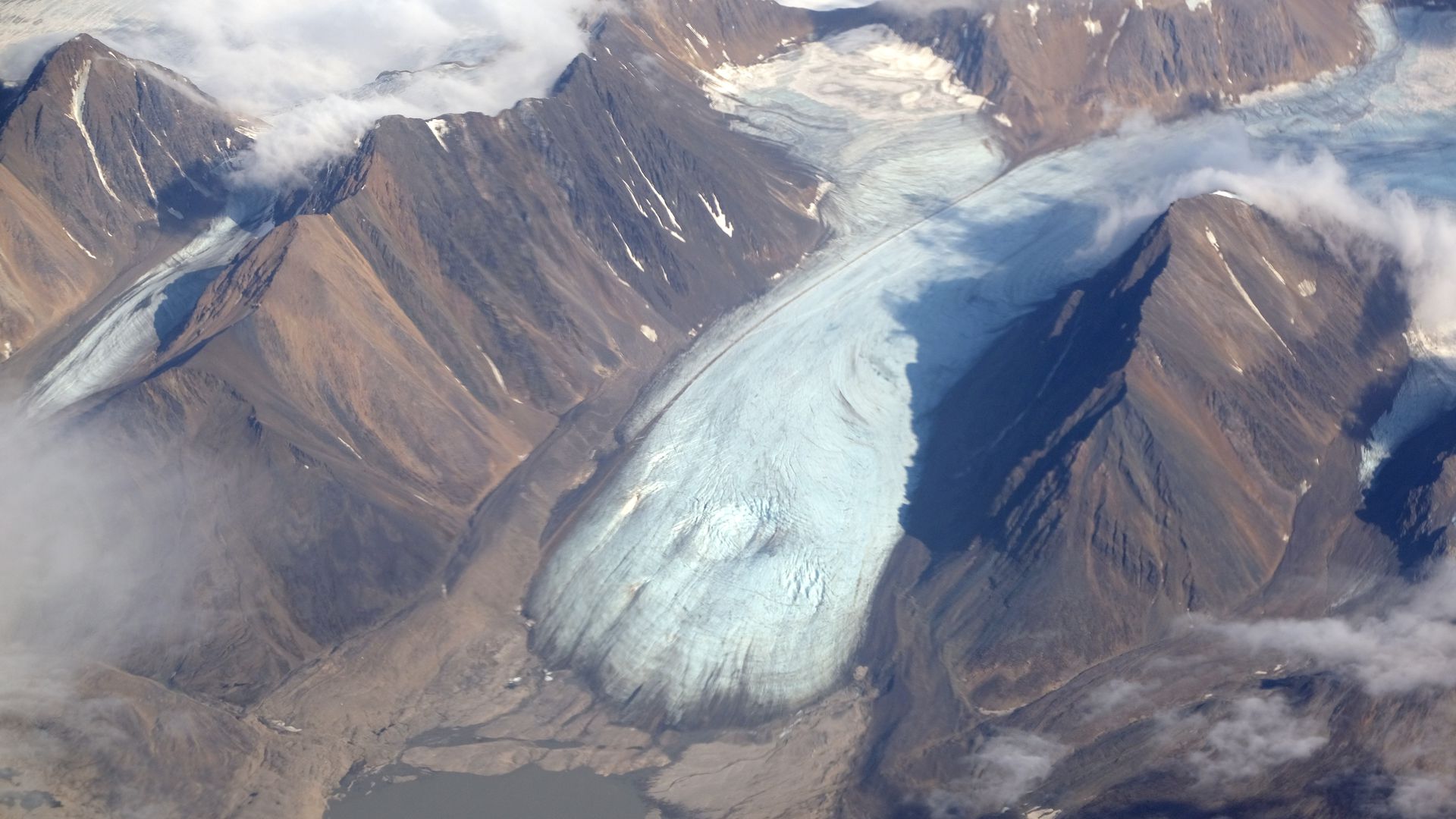
Earth's glaciers could be at least partially saved if greenhouse gas emissions and resulting global warming were limited to the Paris Agreement's most ambitious goals, a new study finds.
Why it matters: Glaciers are a vital source of freshwater for nearly 2 billion people, and their melt contributes to sea level rise.
Currently, the vast majority of the planet's glaciers are melting and shrinking in response to higher temperatures, greater rainfall and increased ocean temperatures that can eat away at the floating ice shelves of marine-terminating glaciers.
The new study gives a fresh look at the fate of every glacier on Earth in a warming world, providing new melt projections and regional details.
What they found: The study, published Thursday in the journal Science, takes a global view of the planet's land-based glaciers using computer modeling that incorporates many different scenarios of future emissions and temperature change.
The study found that even if temperature increases are limited to the most ambitious Paris Agreement goal of 1.5°C of warming above preindustrial levels, the world would still lose about half the world's glaciers — albeit mostly smaller ones — by 2100.










